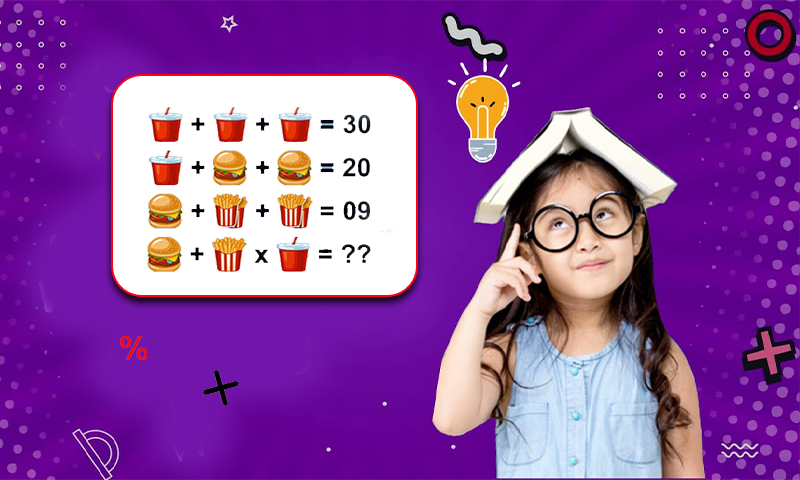
In various fields of studies, math riddles or math puzzles have been displayed to be a unique way for employing any student on any topic. Math riddles not only help a student to be active but also help a student to become a passive listener. Math riddles play a vital role in enhancing the all-around persuasiveness of the learning atmosphere.
For keeping the students attracted and immersed during classes the teachers always try to find out new strategies. Math riddles are supposed to be one of the best ways to make this fruitful. In this article, you are going to be shared what can you learn from math riddles.
What are Math Riddles
A math riddle is nothing but a question or remark that is framed deliberately to impose aptitude in understanding its answer or meaning. Math riddles are usually formulated in such a way that is completely pertinent to real-life conditions. That is why math riddles are supposed to assist students in understanding problematic ideas. The pupils have to concentrate on and enhance their capabilities in critical thinking for solving problems very easily.
What is the Reason for the Popularity of the Math Riddles
There are a lot of reasons why children are supposed to respond very well to math riddles. The reasons are as follows:
- The students might have heard them previously in some other contexts. For this reason, they are familiar with the belief.
- You will enjoy learning very much if you are familiar with the material. Math riddles have been created in short so that they become favorable for younger students.
- You will find the math riddles or math puzzles very much entertaining. While the students will be able to find enjoyment in debating the subject, they will be able to concentrate more.
- Math riddles help the students to stay motivated.
The Advantages of Math Riddles
There are a lot of advantages to math riddles. You will be able to learn a lot of things from math riddles. We are going to mention the most important advantages of engaging math riddles in education. The advantages are as follows:
Improve Numerical and Analytical Skills:
We all know that a puzzle is always absurd or odd. But it comes up as a challenge to all. Math riddles compel the students to make use of their critical and analytical thinking in many ways. It helps them to improve their understanding power. But math riddles are not always straightforward. A math riddle assigned for a two-year-old boy can make an adult scratch his head.
Boost Concentration and Comprehension.:
The ability to translate a text is completely different from literacy. You need to be talented enough to be able to read between the lines, think about the context, and understand layers of meaning. Riddles play an important role in developing this skill in the students. The concentration power of the students increases for this feature of problem-solving.
A Strong Bond Creates Between the Students and the Teachers:
It is an outstanding bonding experience whole you share and solve something together. It is employing as well as amazing. The students learn to be out of their area of thinking. They put their step out of their comfort zones for solving the riddles. Using math riddles in a classroom helps to create a strong bonding between the teachers and the students as both are engaged to solve the riddle. The student-teacher relationship becomes stronger.
Increase Vocabulary:
You will be able to come across a lot of new and unusual vocabulary through math riddles. You will be able to learn homophones, metaphors, and so on from riddles. If a student tries to solve a riddle every day it will help him to increase his vocabulary naturally.
To Sum Up
Riddles are an outstanding way to create a strong bonding with your children. They learn how to face and overcome challenges together. You will not get so much satisfaction anywhere as solving a riddle. Math riddles help the child to improve their mind. Riddles are nothing but clever questions that contest you to expand your mind for getting the solution. So, try to use math riddles as much as you can for the mental growth of your children.
